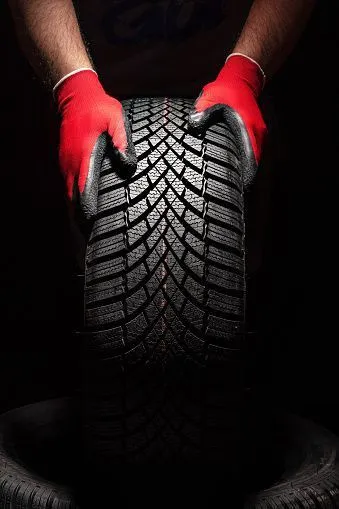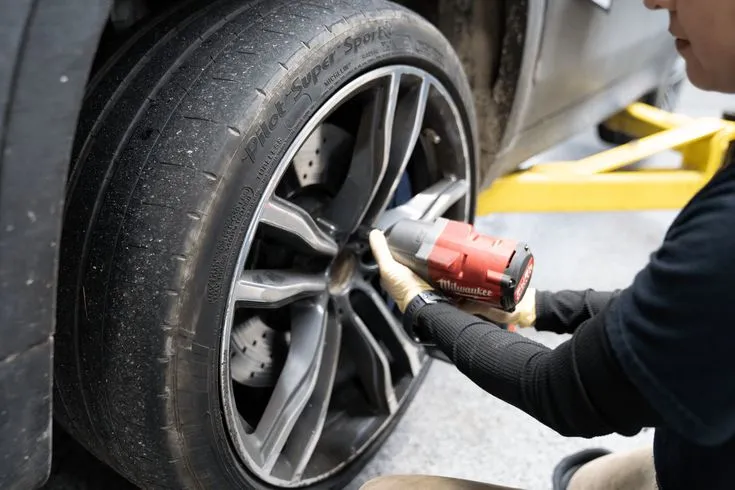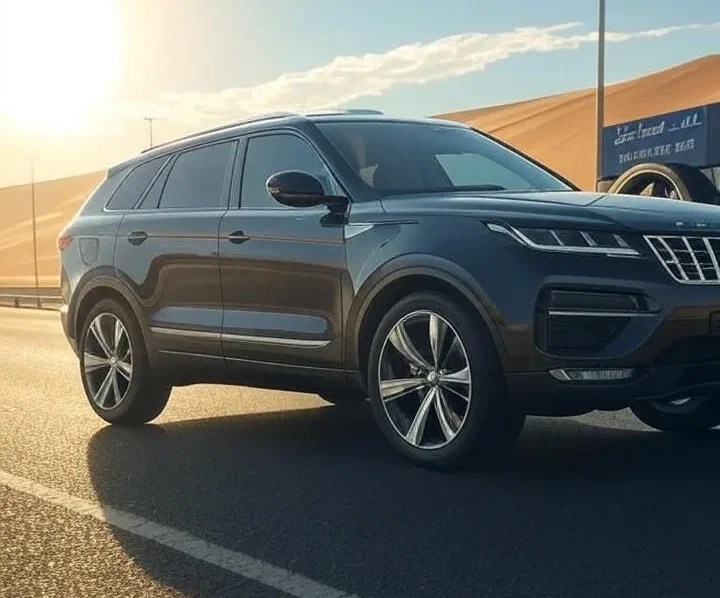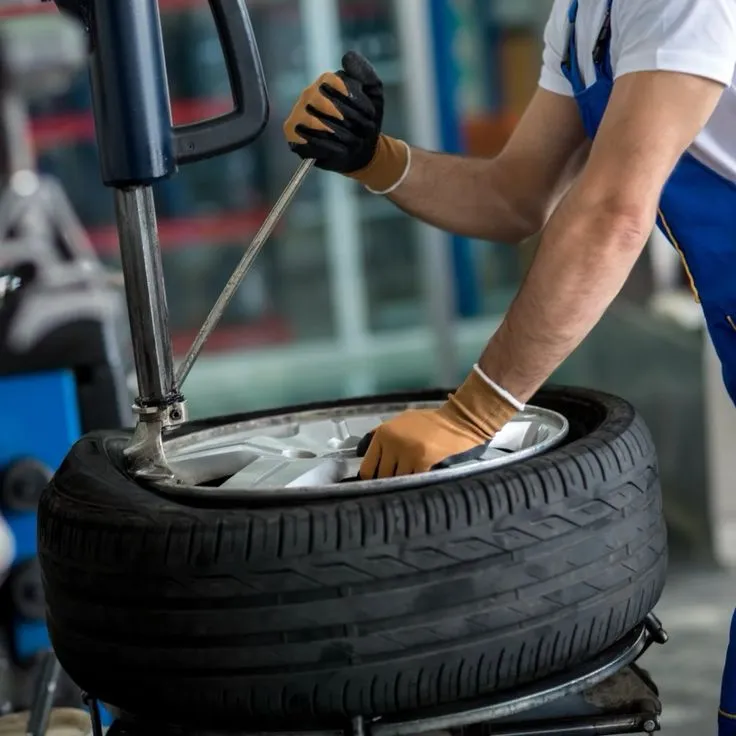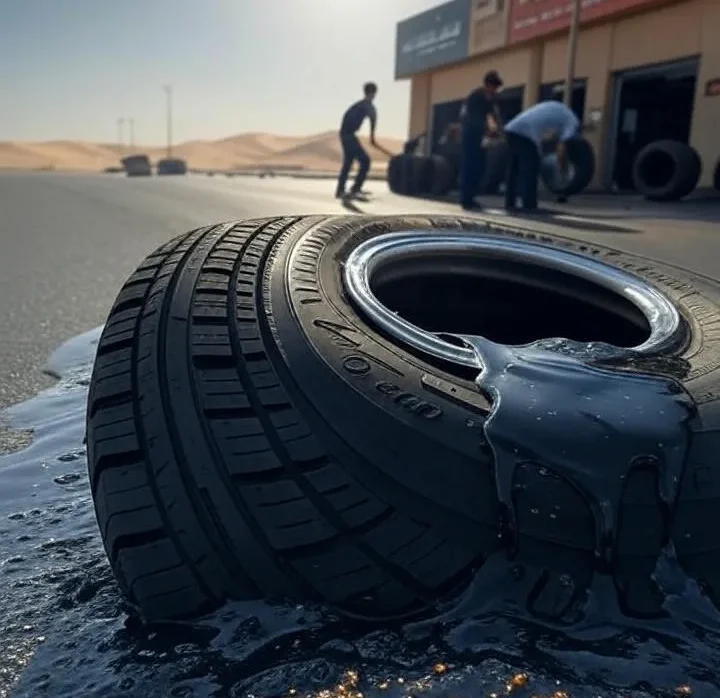Kuwait’s climate is one of the harshest in the world, especially during the peak of summer when temperatures often rise above 50°C (122°F). This extreme weather affects almost every aspect of daily life, but for drivers, one of the most critical concerns is the condition of their tires. The Impact of Kuwait’s Summer Heat on Tire Lifespan is a topic that every motorist in the region must understand to ensure safety, performance, and cost savings.
Unlike other countries with milder climates, Kuwait’s حرارة الصيف (summer heat) can drastically shorten عمر الإطارات (tire lifespan), leading to increased risks of blowouts, faster tread wear, and costly replacements. Let’s explore how this happens, what problems drivers commonly face, and the best solutions to protect your vehicle on Kuwait’s hot roads.
Why Kuwait’s Summer Heat is a Threat to Tires
The Impact of Kuwait’s Summer Heat on Tire Lifespan starts with basic physics. As temperatures rise, the air inside the tire expands, increasing internal pressure. At the same time, asphalt roads absorb massive amounts of heat, transferring that energy directly to your tires.
- Rubber Breakdown: Prolonged exposure to heat makes rubber compounds softer and more prone to cracking.
- Overpressure Risks: Excessive tire pressure from expanding air often leads to blowouts.
- Weakening Sidewalls: Heat causes structural stress that reduces the overall durability of the tire.
For drivers in إطارات الكويت (Kuwait tires), these issues are not seasonal inconveniences—they are daily realities that affect both safety and finances.
Common Tire Problems Caused by Kuwait’s Climate
- Accelerated Tread Wear
The tread is what keeps your car connected to the road. In Kuwait’s summer, tread depth decreases at double or triple the rate compared to cooler climates. This reduces grip, traction, and braking efficiency. - Increased Blowouts
One of the most dangerous impacts of Kuwait’s Summer Heat on Tire Lifespan is sudden blowouts at high speeds. The combination of hot asphalt and overinflated tires creates explosive pressure conditions. - Reduced Handling and Control
Softened rubber struggles to maintain stability, especially during sharp turns or emergency braking. This makes vehicles harder to control, particularly on Kuwait’s highways. - Cracking and Dry Rot
Continuous exposure to حرارة الصيف without proper care leads to cracks in the sidewalls and tread, known as dry rot, which makes tires unsafe. - Shorter Replacement Cycles
While a tire might last 4–5 years in moderate climates, in Kuwait, many drivers find themselves replacing tires every 2–3 years due to extreme conditions.
How to Protect Tires from Kuwait’s Summer Heat
Since the Impact of Kuwait’s Summer Heat on Tire Lifespan is unavoidable, the goal should be to minimize its effects. Here are practical steps every driver in Kuwait can follow:
- Monitor Tire Pressure Frequently
- Heat causes air to expand, so check your tire pressure at least once a week in summer.
- Use a reliable digital gauge to ensure accuracy.
- Follow the manufacturer’s recommended PSI, not just the gas station’s defaults.
- Choose Heat-Resistant Tires
Premium tire brands now design products specifically for hot climates like Kuwait. These tires use advanced rubber compounds resistant to حرارة الصيف, ensuring longer عمر الإطارات.
- Schedule Regular Rotation and Balancing
Rotating your tires every 8,000–10,000 km ensures even wear and reduces stress on specific spots that heat can worsen.
- Avoid Overloading the Vehicle
Carrying extra weight increases heat buildup and tire stress. Stick to your car’s maximum load rating, especially during long summer road trips across الكويت.
- Park in Shaded Areas
When possible, avoid exposing your car to direct sunlight for hours. Parking in shade or using tire covers reduces surface heat damage.
The Role of Quality Tires in Kuwait
Investing in the right tires is the most effective way to fight against the Impact of Kuwait’s Summer Heat on Tire Lifespan. Cheap or low-quality tires may save money upfront, but wear out faster, costing more in the long run.
- Premium tires use reinforced sidewalls and silica-enhanced compounds.
- Performance tires offer better heat dissipation for sports cars.
- SUV & 4×4 tires are designed to withstand Kuwait’s desert terrain and high temperatures.
Drivers who invest in trusted brands find themselves replacing tires less frequently, enjoying safer rides, and saving money overall.
Economic Impact of Tire Wear in Kuwait
The financial Impact of Kuwait’s Summer Heat on Tire Lifespan is significant:
- Frequent replacements can cost drivers hundreds of Kuwaiti Dinars each year.
- Businesses with fleets (taxis, delivery vans, buses) face even higher expenses due to bulk tire changes.
- Poor tire maintenance increases fuel consumption, further raising costs.
By choosing durable tires and practicing preventive care, both individual drivers and businesses can cut these expenses substantially.
Safety Concerns on Kuwait’s Roads
Heat-related tire failures are one of the leading causes of summer accidents in Kuwait. Sudden blowouts at highway speeds can cause loss of control, collisions, and rollovers. The Impact of Kuwait’s Summer Heat on Tire Lifespan goes beyond money—it is directly linked to road safety.
Environmental Considerations
Shorter عمر الإطارات means more discarded tires each year. Kuwait faces challenges with tire waste management, and excessive replacements contribute to pollution and landfill overflow. Extending tire life through proper maintenance helps reduce environmental damage.
Conclusion
The Impact of Kuwait’s Summer Heat on Tire Lifespan is undeniable. From faster tread wear to increased blowouts, حرارة الصيف in Kuwait creates unique challenges for drivers. However, with the right precautions—such as monitoring pressure, investing in heat-resistant tires, and regular maintenance—drivers can extend عمر الإطارات, improve safety, and save money.
Choosing quality إطارات الكويت is not just about performance—it is about protecting lives, reducing costs, and driving with confidence under the harshest summer conditions.
If you are looking for premium tires built for Kuwait’s climate, visit FormulaWheel today and explore our collection of top brands designed for حرارة الصيف.
FAQ – Impact of Kuwait’s Summer Heat on Tire Lifespan
- How does Kuwait’s summer heat affect tire pressure?
Heat causes air inside the tires to expand, increasing pressure and raising the risk of blowouts. This is a key part of the Impact of Kuwait’s Summer Heat on Tire Lifespan. - What type of tires are best for Kuwait?
Heat-resistant tires designed for GCC climates are best. Look for brands offering reinforced compounds for حرارة الصيف. - How often should I check my tires in Kuwait’s summer?
At least once a week. Regular monitoring helps prevent overinflation and ensures longer عمر الإطارات. - Can parking in the shade extend tire life?
Yes, reducing direct sun exposure lowers surface heat and prevents premature cracking. - How often do drivers in Kuwait typically replace tires?
While tires last 4–5 years elsewhere, in Kuwait, many need replacement every 2–3 years due to the harsh climate. - Does tire brand really make a difference?
Absolutely. Premium brands withstand Kuwait’s extreme heat better, offering improved durability, safety, and fuel efficiency.

